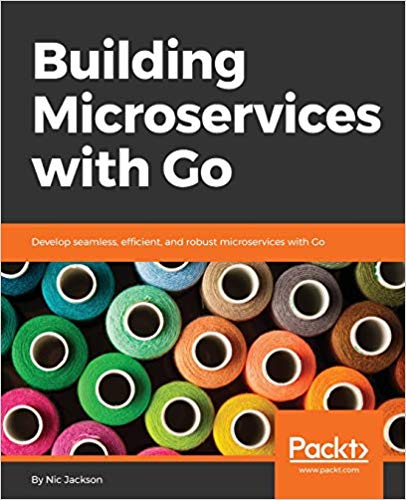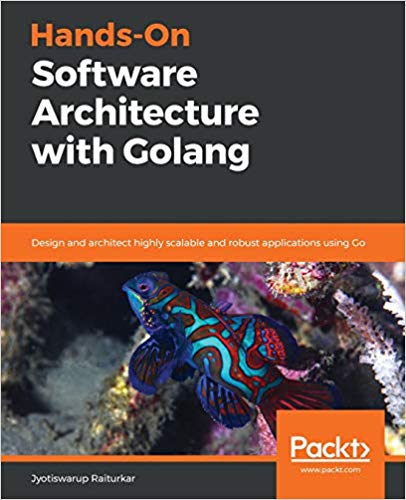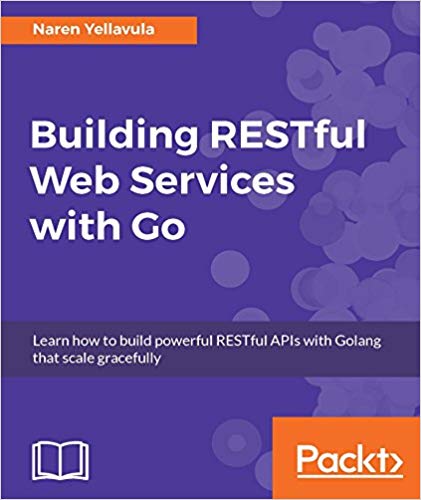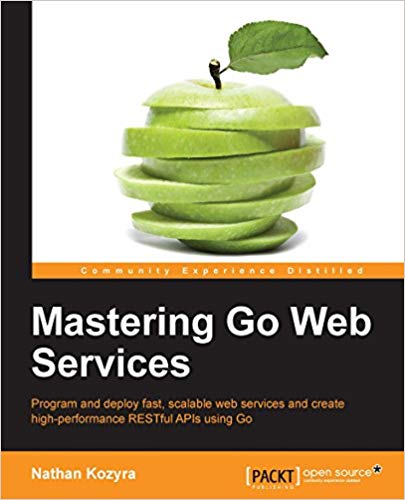Overview
Go helps enterprises build and scale cloud computing systems
As applications and processing move to the cloud, concurrency becomes a very big issue. Cloud computing systems, by their very nature, share and scale resources. Coordinating access to shared resources is an issue that impacts every application processing in the cloud, and requires programming languages “explicitly geared to develop highly reliable concurrent applications.”
Go makes it very easy to scale as a company. This is very important because, as our engineering team grows, each service can be managed by a different unit.
Key Benefits
Address tradeoff between development cycle time and server performance
Go was created to address exactly these concurrency needs for scaled applications, microservices, and cloud development. In fact, over 75 percent of projects in the Cloud Native Computing Foundation are written in Go.
Go helps reduce the need to make this tradeoff, with its fast build times that enable iterative development, lower memory and CPU utilization. Servers built with Go experience instant start up times and are cheaper to run in pay-as-you-go and serverless deployments.
Address challenges with the modern cloud, delivering standard idiomatic APIs
Go addresses many challenges developers face with the modern cloud, delivering standard idiomatic APIs, and built in concurrency to take advantage of multicore processors. Go’s low-latency and “no knob” tuning make Go a great balance between performance and productivity - granting engineering teams the power to choose and the power to move.
Use Case
Use Go for Cloud Computing
Go’s strengths shine when it comes to building services. Its speed and built-in support for concurrency results in fast and efficient services, while static typing, robust tooling, and emphasis on simplicity and readability help build reliable and maintainable code.
Go has a strong ecosystem supporting service development. The standard library includes packages for common needs like HTTP servers and clients, JSON/XML parsing, SQL databases, and a range of security/encryption functionality, while the Go runtime includes tools for race detection, benchmarking/profiling, code generation, and static code analysis.
The major Cloud providers (GCP, AWS, Azure) have Go APIs for their services, and popular open source libraries provide support for API tooling (Swagger), transport (protocol buffers, gRPC), monitoring (OpenCensus), Object-Relational Mapping (gORM), and authentication (JWT). The open source community has also provided several service frameworks, including Go Kit, Go Micro, and Gizmo, which can be a great way to get started quickly.
Go tools for Cloud Computing
 Docker
Docker
Docker is a platform-as-a-service that delivers software in containers. Containers bundle software, libraries, and config files, are hosted by a Docker Engine, and are run by a single operating-system kernel (utilizing less system resources than virtual machines).
Cloud developers use Docker to manage their Go code and support multiple platforms, as Docker supports the development workflow and deployment process.
 Kubernetes
Kubernetes
Kubernetes is an open-source container-orchestration system, written in Go, for automating web app deployment. Web apps are often built using containers (as noted above) packaged with their dependencies and configurations. Kubernetes helps deploying and managing those containers at scale. Cloud programmers use Kubernetes to build, deliver, and scale containerized apps quickly—managing the growing complexity via APIs that controls how the containers will run.
Featured users
| Customer | Brief introduction | Projects using go |
|---|---|---|


|
 Google Cloud uses Go across its ecosystem of products and tools, including Kubernetes, gVisor, Knative, Istio, and Anthos. Go is fully supported on Google Cloud across all APIs and runtimes.
Google Cloud uses Go across its ecosystem of products and tools, including Kubernetes, gVisor, Knative, Istio, and Anthos. Go is fully supported on Google Cloud across all APIs and runtimes.
|
|


|
 Capital One uses Go to power the Credit Offers API, a critical service. The engineering team is also building their serverless architecture with Go, citing Go’s speed and simplicity, and mentioning that “[they] didn’t want to go serverless without Go.”
Capital One uses Go to power the Credit Offers API, a critical service. The engineering team is also building their serverless architecture with Go, citing Go’s speed and simplicity, and mentioning that “[they] didn’t want to go serverless without Go.”
|
|


|
 Dropbox was built on Python, but in 2013 decided to migrate their performance-critical backends to Go. Today, most of the company’s infrastructure is written in Go.
Dropbox was built on Python, but in 2013 decided to migrate their performance-critical backends to Go. Today, most of the company’s infrastructure is written in Go.
|
|


|
 MercadoLibre uses Go to scale its eCommerce platform. Go produces efficient code that readily scales as MercadoLibre’s online commerce grows. Go improves their productivity while streamlining and expanding MercadoLibre services.
MercadoLibre uses Go to scale its eCommerce platform. Go produces efficient code that readily scales as MercadoLibre’s online commerce grows. Go improves their productivity while streamlining and expanding MercadoLibre services.
|
|
|
|
|
|


|
 Twitch uses Go to power many of its busiest systems that serve live video and chat to millions of users.
Twitch uses Go to power many of its busiest systems that serve live video and chat to millions of users.
|
|


|
 Uber uses Go to power several of its critical services that impact the experience of millions of drivers and passengers around the world. From their real-time analytics engine, AresDB, to their microservice for Geo-querying, Geofence, and their resource scheduler, Peloton.
Uber uses Go to power several of its critical services that impact the experience of millions of drivers and passengers around the world. From their real-time analytics engine, AresDB, to their microservice for Geo-querying, Geofence, and their resource scheduler, Peloton.
|
Get Started
Go books for cloud computing
-
 Building Microservices with Go
Building Microservices with Go
-
 Hands-On Software Architecture with Golang
Hands-On Software Architecture with Golang
-
 Building RESTful Web services with Go
Building RESTful Web services with Go
-
 Mastering Go Web Services
Mastering Go Web Services
Web frameworks
-
Echo
A high performance, extensible, and minimalist Go web framework
-
Flamingo
A fast open-source framework based on Go with clean and scalable architecture
-
Gin
A web framework written in Go, with a martini-like API.
-
Gorilla
A web toolkit for the Go programming language.
Routers
-
net/http
A standard library HTTP package
-
julienschmidt/httprouter
A lightweight high performance HTTP request router
-
gorilla/mux
A powerful HTTP router and URL matcher for building Go web servers with 🦍
-
Chi
A lightweight, idiomatic and composable router for building Go HTTP services.
Template Engines
-
html/template
A standard library HTML template engine
-
flosch/pongo2
A Django-syntax like templating-language
Databases & Drivers
-
database/sql
A standard library interface with driver support for MySQL, Postgres, Oracle, MS SQL, BigQuery and most SQL databases
-
mongo-driver/mongo
The MongoDB supported driver for Go
-
elastic/go-elasticsearch
An Elasticsearch client for Go
-
GORM
An ORM library for Go
-
Bleve
Full-text search and indexing for Go
-
CockroachDB
An evolution of the database—architected for the cloud to deliver resilient, consistent, distributed SQL at scale
Web Libraries
-
markbates/goth
Authentication for web apps
-
jinzhu/gorm
An ORM library for Go
-
dgrijalva/jwt-go
A Go implementation of json web tokens